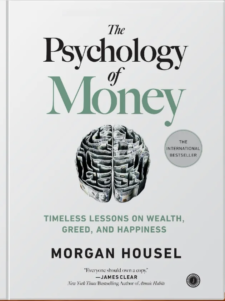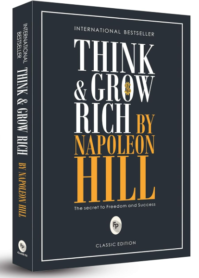Introduction
The Psychology of Money book by Mr. Morgan Housel, published on September 1, 2020, in the UK, explores financial understanding and behavior. It features 20 chapters, including 19 short stories about money and a concluding confession. Here we will review the content of the book The Psychology of Money.
Morgan Housel, the author, is a two-time Best in Business Award winner from the Society of American Business Editors and Writers. He is a former columnist for The Motley Fool and The Wall Street Journal and a partner at The Collaborative Fund.
Key points of the book
- The Psychology of Money emphasizes the importance, value, and potential of wealth. Chapter 1, No One’s Crazy, stresses the role of time, noting that many discuss retirement but few act on it.
- This book uncovers overlooked truths, emphasizes saving, and reminds us nothing is free. Chapter 2 explores luck and risk, showing “nothing is as good or as bad as it seems.
- Many fail to achieve financial goals due to fear, uncertainty, or shifting priorities. The book emphasizes that maintaining fixed goals is the toughest financial skill.
- Chapters 4 and 5 illustrate the power of compounding and consistency, noting that $81.5 billion of Warren Buffett’s $84.5 billion net worth was earned after his 65th birthday.
- Being wrong isn’t a setback; even frequent mistakes can lead to success, as remarkable individuals often achieve greatness despite acting on flawed ideas.
- The book teaches that feeling rich comes from spending lavishly, but true wealth lies in spending within your means. Controlling your time is the greatest reward money offers.
- The pursuit of appearing rich often drives people to buy beyond their means, leading to debt and poverty. Spending money to show wealth is the fastest way to have less money.
- This book challenges your ego to assess whether spending is essential or just for show, stressing that the key to any plan is preparing for it to go off track.
- Wealth and financial freedom demand consistent long-term effort. Many fall short from lack of commitment, as shifting goals make long-term planning harder than it seems.
- To summarize this book below are the few important points
- Less ego, more wealth
- Manage your money in a way that helps your sleep at night
- As a investor, the single most powerful thing is to increase your time horizon
- Use money to gain control over your time
- Avoid the extreme ends of financial decisions
Conclusion
Having read it thoroughly, I believe this is a must-read for everyone – regardless of age or gender. If you want to understand how money works or use it wisely, this book is for you. If you liked this, you would love to read Think and Grow Rich by Napoleon Hill and Let’s Talk Money by Monika Halan. You could purchase this book on amazon.
Disclaimer: I express my own views in this article after reading the book, without intending to offend anyone. I do not sponsor or endorse anyone, and any resemblance to actual persons, living or dead, is purely coincidental. The mentioned link is an affiliate link, and purchasing the book through it is a great way to support me if you’d like to read along!
EA00170



